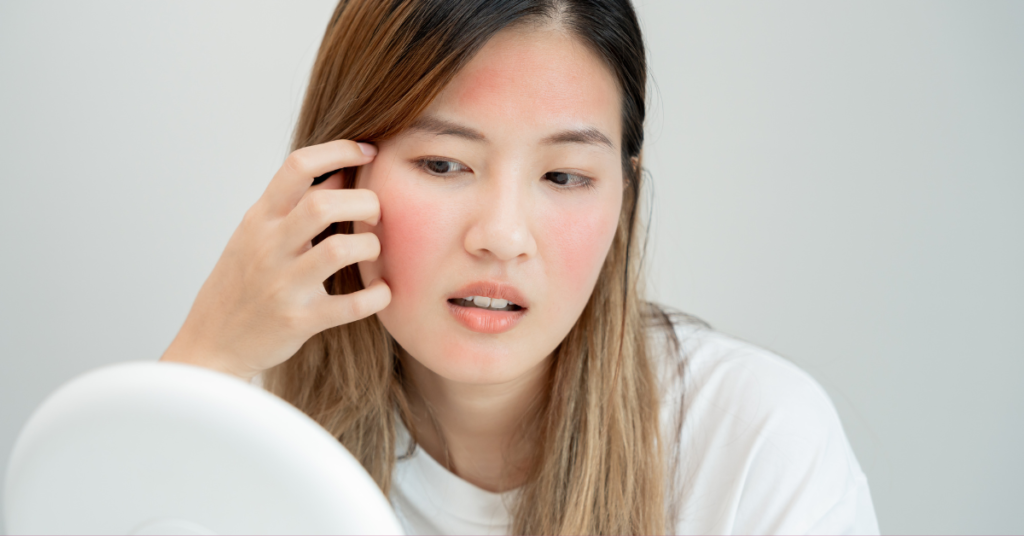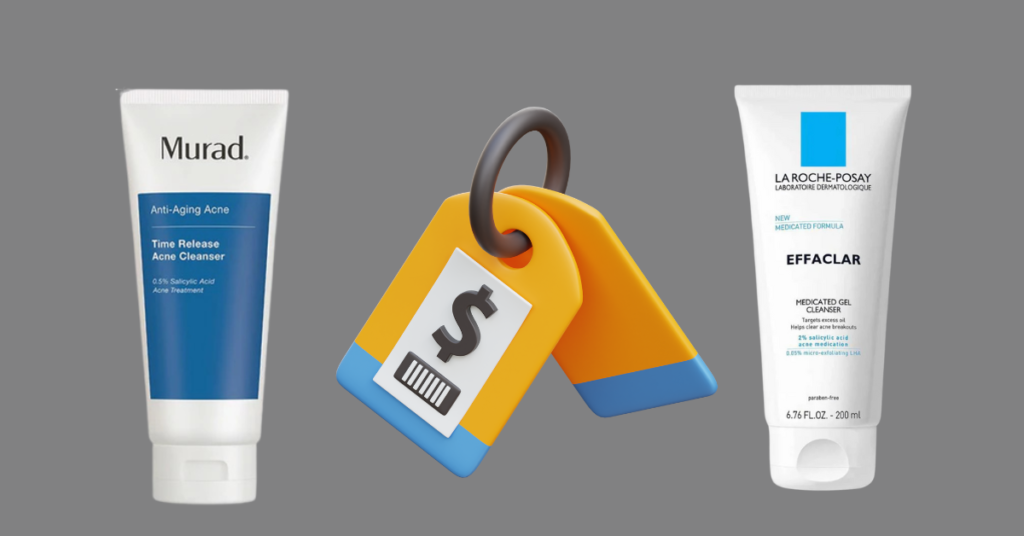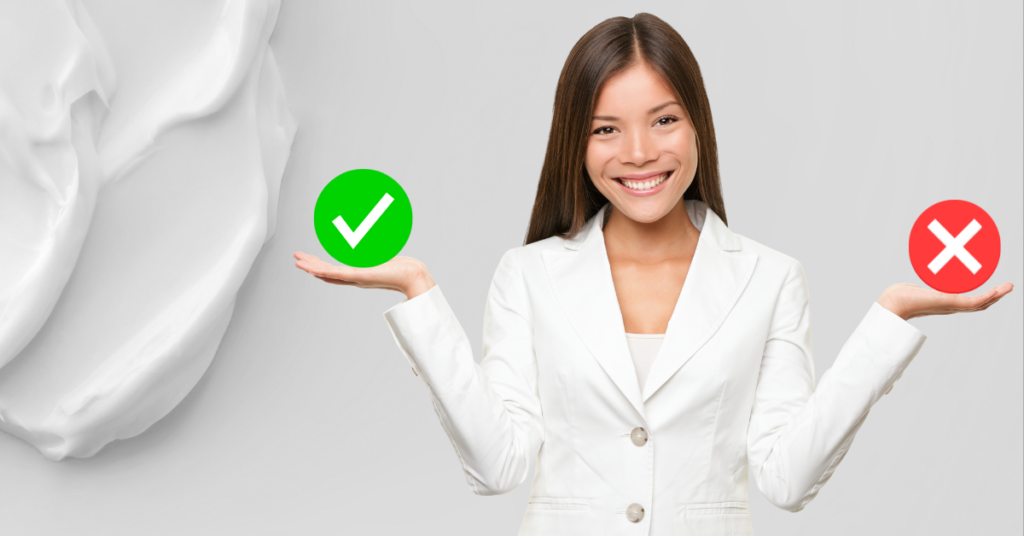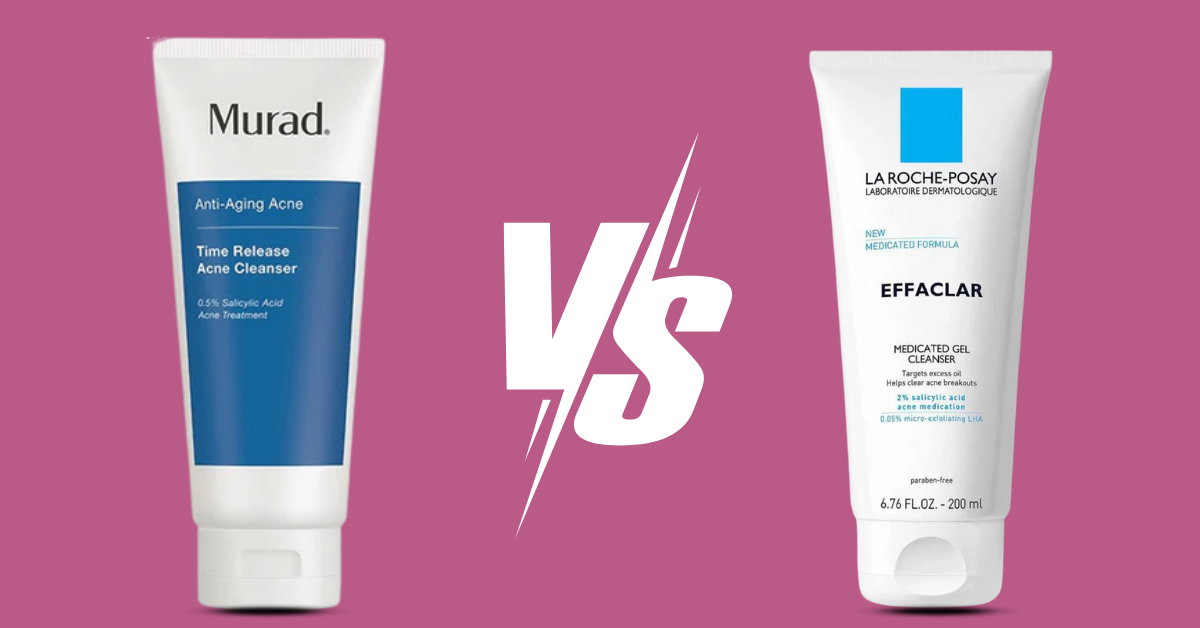The appropriate choice of facial cleanser is essential when managing skin prone to acne. Anti-breakout, anti-inflammatory, and skin-healthy products are the goals of acne cleansers. Effaclar Acne Cleanser by La Roche-Posay and Murad Acne Cleanser are two well-liked choices. Though their respective compositions may be more effective for different people, both make the claim that they can treat acne.
The ingredients, potency, and skin type compatibility of these two cleansers will all be compared in this article. After reading this, you should be able to decide which product is best for your particular skin type. let’s start the comparison between “Murad Acne Cleanser VS La Roche Posay Acne Cleanser“
Table of Contents
Key Ingredients and Their Benefits

The secret to any skincare product is its ingredients, and La Roche-Posay and Murad are made with compounds that treat acne. The two cleansers use these substances in different ways, though.
| Ingredient | Murad Acne Cleanser | La Roche-Posay Acne Cleanser |
| Salicylic Acid | Deeply cleans pores to get rid of dead skin cells and excess oil, which stops breakouts. | Exfoliates the skin and clears clogged pores to further address acne. |
| Green Tea Extract | Calms skin, lowers inflammation and has antioxidant advantages. | Not included. |
| Niacinamide | Not included. | Increases moisture barrier, soothes sensitive skin, and lessens redness. |
| Thermal Spring Water | Not included. | Contains calming minerals that soothe and hydrate the skin. |
| Glycerin | Hydrates and prevents dryness. | Not included. |
| Menthol | Provides a refreshing, cooling effect. | Not included. |
Target Skin Types and Concerns

While La Roche-Posay and Murad are both intended to cure acne, their cleansers are more effective for somewhat different skin types and acne-related issues.
| Skin Type | Murad Acne Cleanser | La Roche-Posay Acne Cleanser |
| Oily Skin | Best for oily and acne-prone skin; effective for moderate to severe acne. | Can be used but may not be as effective for severe cases. |
| Sensitive Skin | Not recommended; may cause dryness or irritation. | Ideal for sensitive skin; soothing ingredients minimize irritation. |
| Dry Skin | May cause dryness; use with caution and follow with a good moisturizer. | Suitable for dry skin; hydrating ingredients help maintain moisture balance. |
| Combination Skin | Suitable if oily areas dominate; monitor for dryness in other areas. | Good option; gentle formulation works well for mixed skin types. |
| Acne Severity | Best for moderate to severe acne. | Suitable for mild to moderate acne; effective but gentler approach. |
Formulation and Texture

The way a product feels and textures can affect how a product feels and works overall, and both cleansers have different textures.
| Feature | Murad Acne Cleanser | La Roche-Posay Acne Cleanser |
| Texture | Gel consistency that lathers well; refreshing feel. | Creamy texture that feels soft and smooth on the skin. |
| Lathering | Produces a good amount of foam when mixed with water. | Minimal lather; gentle and soothing experience. |
| Post-Cleansing Feel | May leave skin feeling tight or dry; follow up with a moisturizer. | Leaves skin feeling clean but not stripped; balanced and calm feel. |
Effectiveness and Results

Both cleansers are effective in treating acne, although they do so in slightly different ways.
| Feature | Murad Acne Cleanser | La Roche-Posay Acne Cleanser |
| Speed of Results | Fast results: within weeks, many users report less outbreaks. | Long-term efficacious for mild to moderate acne; takes longer to show effects. |
| Long-Term Use | Can result in dryness if used excessively; for optimal effects, use moisturizer after. | Long-term use is appropriate; discomfort is unlikely. |
| Best For | Perfect for people in need of a potent treatment for moderate to severe acne. | Mild to moderate acne; perfect for everyday use and sensitive skin.. |
Impact on Skin Sensitivity and Irritation

The way a cleanser for acne impacts the sensitivity of your skin is one of the most crucial considerations. Salicylic acid, one of the strongest components in acne treatments, can occasionally irritate, particularly if the solution is too severe for your skin type.
| Feature | Murad Acne Cleanser | La Roche-Posay Acne Cleanser |
| Irritation Risk | Higher risk for sensitive skin; may cause dryness, redness, or tightness. | Lower risk; designed to be gentle and calming on the skin. |
| Moisturization Needs | Requires a good moisturizer after use to prevent dryness. | Hydrating ingredients help keep skin balanced; generally does not require extra moisture. |
Price, Availability, and Packaging

Price and availability are crucial considerations when comparing acne cleansers, particularly if you intend to use the product for an extended period.
| Feature | Murad Acne Cleanser | La Roche-Posay Acne Cleanser |
| Price Range | $32 to $40 for a 6.75-ounce bottle; considered a premium product. | $15 to $20 for a 6.76-ounce bottle; A more budget-friendly option. |
| Availability | Available online and in high-end skincare stores. | Found in drugstores, online, and some department stores; more accessible. |
| Packaging | Pump bottle for easy dispensing. | Squeeze tube; prevents over-application and is easy to use. |
User Feedback and Dermatologist Recommendations

Feedback from users and dermatologists can provide valuable insight into the effectiveness and safety of these products.
| Feature | Murad Acne Cleanser | La Roche-Posay Acne Cleanser |
| User Reviews | Good feedback for skin that is oily and prone to acne; quick outcomes. | Users like the relaxing effect; recommended for delicate skin. |
| Dermatologist Recommendations | Effective for moderate to severe forms of acne, harsher treatments are frequently advised. | This softer method is often used for mild to moderate acne. |
Pros and Cons

Let’s summarize the strengths and weaknesses of both cleansers:
| Feature | Murad Acne Cleanser | La Roche-Posay Acne Cleanser |
| Pros | With its cool gel texture and calming green tea extract, it treats moderate to severe acne quickly. | Long-term usage is recommended for this gentle, inexpensive solution with niacinamide and thermal spring water that soothes sensitive skin. |
| Cons | Expensive compared to many other cleansers; may create stiffness after use; may be drying for sensitive skin. | Exhibits results more slowly and could not be potent enough for severe acne. |
Tips for Using Acne Cleansers Effectively

To get the best results from either Murad or La Roche-Posay Acne Cleanser, consider the following tips:
| Tip | Description |
| Use Twice Daily | Make sure to wash your face twice a day, in the morning and at night. |
| Gentle Application | Gently massage the cleanser into your skin; vigorous washing can irritate it. |
| Follow with Moisturizer | After cleansing, always use a decent moisturizer, especially if your skin is sensitive or dry. |
| Test a Patch First | Do a patch test before applying the cleanser all over your face if you have sensitive skin. |
| Avoid Mixing Products | Use caution when taking other acne treatments concurrently; seek advice from a physician. |
| Be Consistent | For optimal results, use the cleanser regularly and give it time to act (a few weeks is generally enough). |
| Hydrate | To keep your skin hydrated from the inside out, sip on lots of water. |
Conclusion
Your skin type and acne severity will determine which Murad and La Roche-Posay acne cleansers are best for you. Because Murad contains stronger chemicals like salicylic acid, it can be a better choice if you have oily skin or moderate to severe acne. Conversely, La Roche-Posay’s calming components, including niacinamide and thermal spring water, make it perfect for sensitive, dry, or mixed skin types.
If you’re not sure which product is appropriate for you, speak with a dermatologist and take into account your particular skin needs for the greatest outcomes. When used regularly, both cleansers can help you get clearer skin.
More Interested: Discover The Hidden Face Wash Benefits for Youthful, Glowing Skin!
Which La Roche-Posay cleanser is best for hormonal acne?
La Roche-Posay Effaclar Medicated Gel Cleanser’s salicylic acid composition helps clear pores and lessen breakouts, which is why it’s frequently recommended for hormonal acne.
Is La Roche-Posay actually good for acne?
Indeed, La Roche-Posay is well-known for treating acne, particularly with its Effaclar product line that uses benzoyl peroxide and salicylic acid to successfully tackle acne and lessen outbreaks.
Is Murad safe for the skin?
Indeed, most people agree that Murad products are safe for the skin. They are safe for all skin types, having been dermatologist-tested and manufactured without parabens or sulfates, which are toxic substances.
Does Murad lighten skin?
Murad provides skin-brightening and hyperpigmentation-reducing solutions, like its Vitamin C and dark spot treatments. They balance out complexion instead of lightening or bleaching skin tones.

